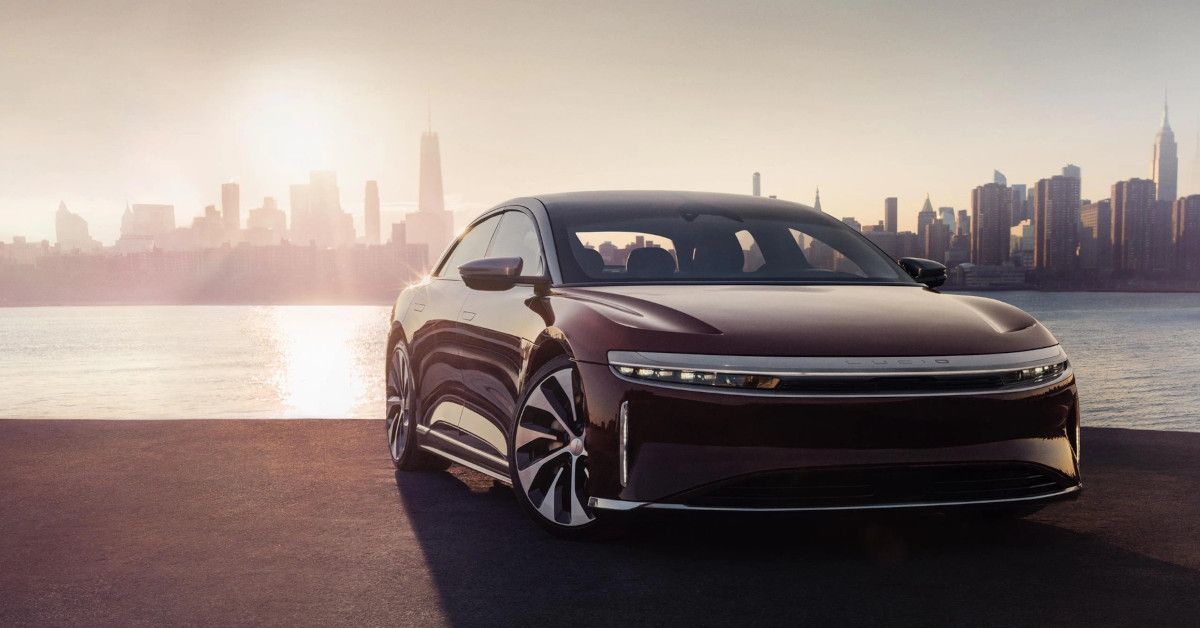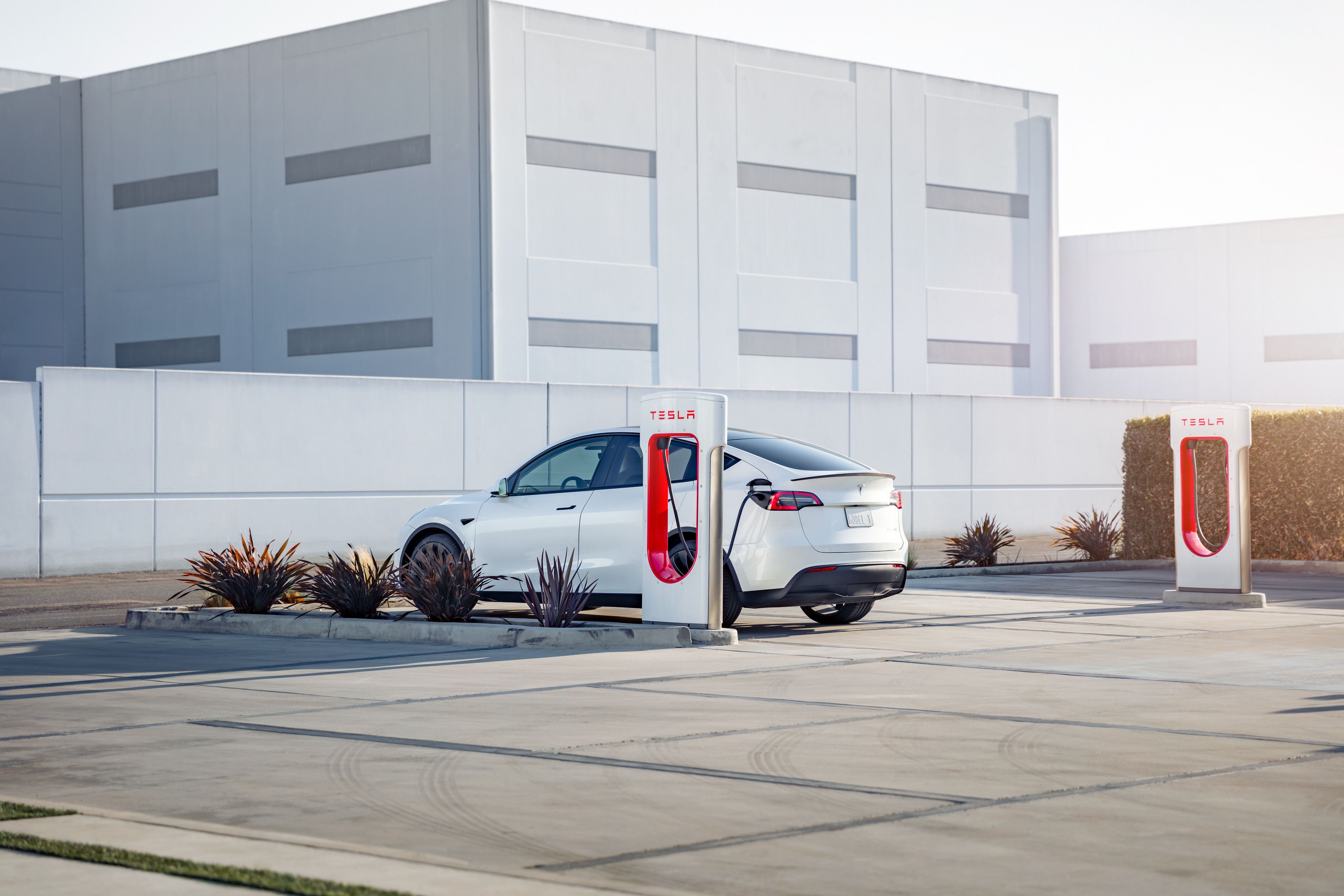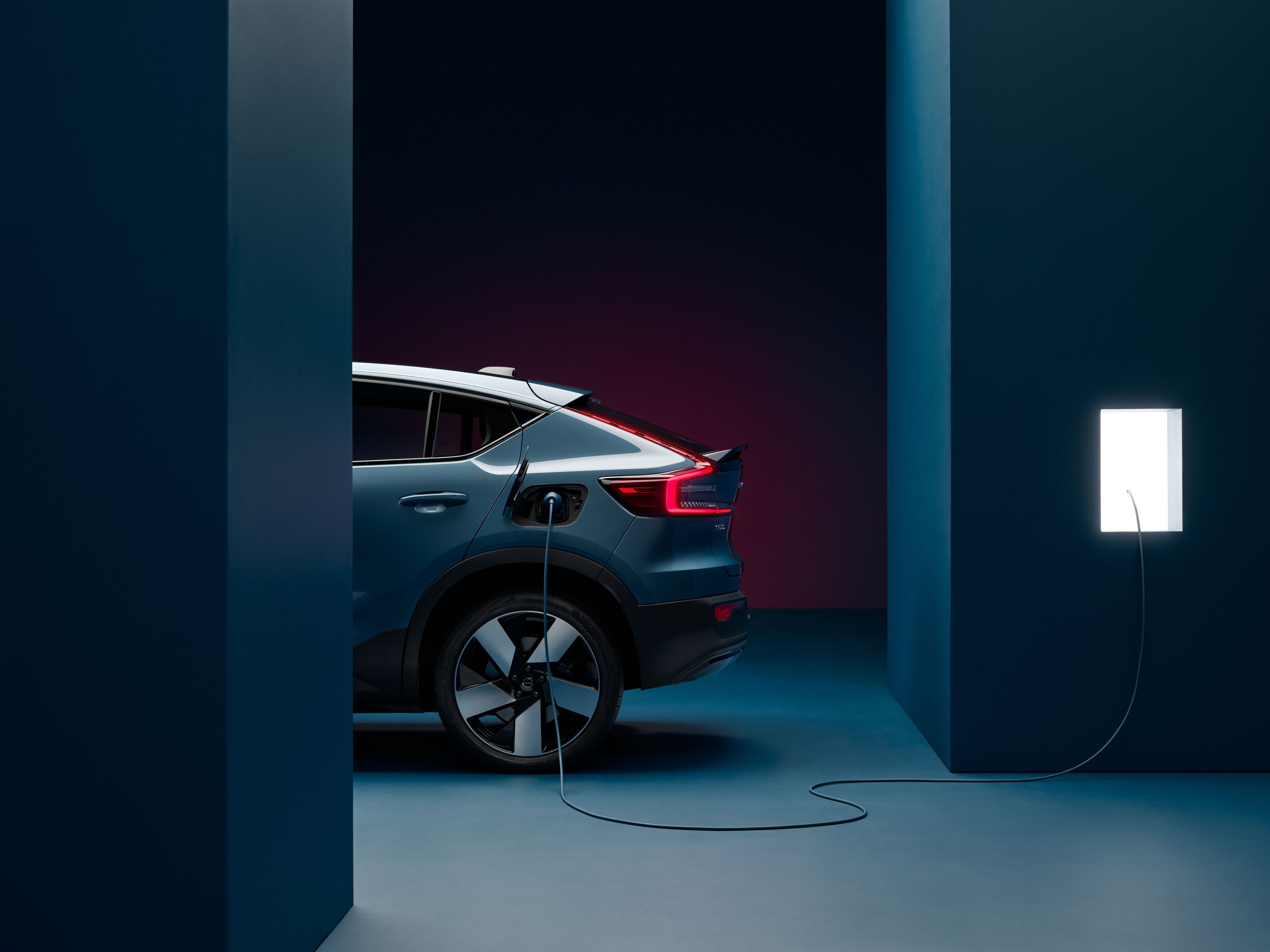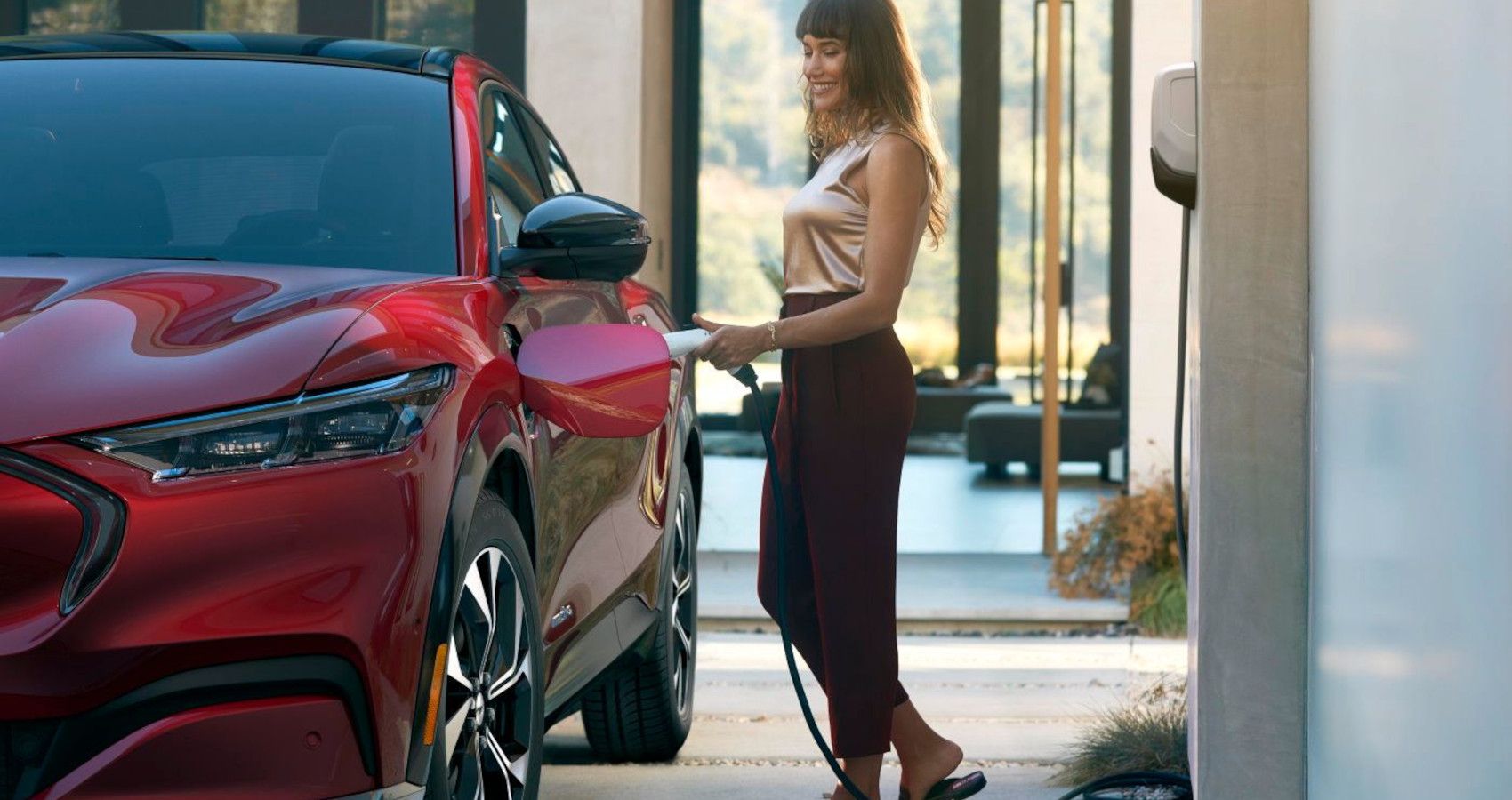As the world teeters on the edge of climate disaster, electric vehicles (EVs) are rapidly becoming one of the last hopes of the automotive industry. Each day, more consumers choose to switch to green vehicles to mitigate the consequences of society’s long and dirty history with fossil fuels.
But as we make this transition from dirty to clean energy sources, we inevitably encounter new difficulties. From exploitative material mining methods to battery charge issues, the consumer must face an entirely novel array of challenges when making the switch to electric vehicles.
One of the most common concerns voiced by EV owners is that their cars’ batteries will not fast charge past 80%. Why is that? And how does EV charging actually work? Today, we’ll focus on answering these questions so you can enter the world of electric vehicles informed and knowledgeable.
Related: 5 Electric Vehicles That Prove Tesla Can Be Dethroned (5 That Tried But Failed)
How An EV Battery Charging Works
Electric vehicle batteries accept only DC or direct current power. However, there are two types of EV charging stations: AC (alternating current) and DC. That means that, unless you plug into a DC charging station, your car must convert the AC power to DC power before using it.
It works like this: inside your electric vehicle is a power converter. This power converter takes AC energy and converts it to DC.
DC charging stations are known as “fast-charging” stations because the power converter is built-in. That means that your vehicle does not have to do any work to convert the power, which allows it to charge much faster.
AC & DC Charging: What’s The Difference?
All energy that comes from the grid is AC power. So, by default, you must utilize a power converter to charge your EV.
The difference lies in the location of that power converter. DC fast-charging stations use a built-in power converter. This allows your vehicle to bypass the conversion step, resulting in a much quicker charge time.
Alternatively, if you charge your EV at an AC charging station, the power must be routed through your vehicle’s in-house power converter. This results in a measurably slower charge time.
Related: How Huge Inflationary Pressures Are Affecting Electric Vehicle Prices
Factors That Affect How Fast Your EV Charges
Regardless of whether you charge your EV at a DC or AC charging station, other circ*mstances affect how quickly it can charge.
One of the most significant elements of your battery’s charging speed is the weather. Lithium-ion batteries, like those used in electric vehicles, do not like cold temperatures. Simply put, cold batteries charge slower than warm ones.
The current charge level of your battery also plays a role. In fact, it takes about the same amount of time for an EV battery to charge from 80% to 100% as it does from 10% to 80%. This is due primarily to the fact that manufacturers design batteries for maximum longevity, and charging to 100% is, in theory, bad for the battery — but more on that later.
The charging station’s power output will also determine how fast the car can charge. A power station with a lower kilowatt (kW) output will charge your EV significantly slower than one with a high output.
Finally, the type of EV you own will substantially affect its time to charge. For example, a Nissan Leaf can take around 50 kW of power, while a Tesla Model 3 can accept about five times as much.
How You Should Be Charging Your EVs
It is possible to charge your EV past 80%. However, this is a slightly nuanced response, and the true answer is much more complicated.
EV manufacturers design electric vehicles to regulate their charges. This means that the charge level you see on the dash is often not entirely accurate. And, in many cases, when a vehicle displays 100%, the actual charge level is typically closer to 80%.
Fast-charging stations often cut off at 80% because EVs require essentially the same amount of time to reach 100% from 80% as they do to reach 80% from 0%. This allows the station to conserve energy and ensure that other drivers can utilize the facilities.
But will it harm your vehicle to charge it past 80%? Technically, it can. Lithium-ion batteries cannot tolerate high voltages for extended periods of time, and keeping your battery charged fully can accelerate degradation. Lithium-Ion batteries work longest and perform their best when they are within the mid-range of charge. While a fast charger could rapidly juice up the battery to 80%, the ions in the battery require to be stabilized, it is why the fast charging facility gets cut off, and the car reverts to slow charging for the remaining 20%. This help manage the longevity of the battery and allows it to perform at its optimal level. Tech YouTuber, Marques Brownlee explains how you should be treating your lithium-ion battery of your phone, in this YouTube video, but it applies similarly to electric cars.
That being said, most modern EVs are designed with battery management systems (BMS). These systems allow the vehicle to regulate its charge and result in the discrepancy to which we alluded above: namely, that your car will often display a charge level slightly different from its actual state.
EV Fast Charging: The Bottom Line
Because electric vehicle manufacturers build their batteries to last a long time, it’s wise to refrain from fully charging your car. This preserves the integrity of your lithium-ion battery and reduces the levels of stress it must handle.
Finally, it may appear that your car cannot charge past 80%. However, this is actually an intentional feature of many charging stations. Because your car can only charge at around 20 kW speed past 80%, cutting off the power allows the station to preserve energy and serve more consumers. However, experts recommend that as the battery internals require stabilizing after a rapid charge, it is best for the battery health to only use fast chargers occasionally. Slow charging at home is the best way to keep your battery health in optimal levels.
FAQs
“EV fast charging slows down as the battery gets closer to fully charged, and this is done to prevent the battery from overheating; extreme heat will stress the battery and degrade its capacity,” said Michael Stanyer, a spokesman for Plug In BC, a Vancouver-based not-for-profit EV education program.
Can you fast charge 80%? ›
Charging sessions with DC Fast Chargers usually have a time limit. That's because they stop charging at a faster rate when the car hits around 80%. If you charge up to 100%, the charge will be as slow as Level 2 charging but cost the same as DC Fast.
Is it better to charge EV to 80%? ›
There may be times when you want or need to charge up your EV to get maximum range. But charging it to the max shouldn't be done every night. In general, the SOC for the battery in your electric car should be maintained between 30% to 80% capacity.
Should I charge my EV to 80% or 100 %? ›
Try to keep it charged between 50% and 80% as routinely as possible, because letting it go completely flat between charges will reduce its lifespan. Too much rapid charging can affect your battery's lifespan because the heat produced from high currents can degrade the battery more quickly.
Why is my battery not charging more than 80? ›
To preserve the lifespan of your iPhone battery, Apple has created a battery optimization feature in iOS 13 that slows down how quickly your iPhone charges and will even hold it at 80% to avoid overstressing the battery. That's why your phone sometimes charges all the way, but other times gets stuck at 80%.
Why should I not charge my EV to 100%? ›
Generally, you shouldn't charge your EV to 100% battery every single night because charging cycles can degrade your battery. Most EVs on the market have a range of a few hundred miles on a single full charge. Unless you are driving long distances every day, that charge should last you a few days.
Should I charge my EV to 90%? ›
Minimize the batteries at 100% state of charge
Keeping the state of battery charge, from 0 percent to 100 percent , also improves the performance of the battery life of your vehicle. Even though a full charge will give you the maximum operating time, it is never a good idea for the overall lifespan of your battery.
What is the 40 80 rule for charging? ›
For best performance, Li ion battery manufacturers recommend that the battery should ideally be charged when it is left with 40 % of its rated energy storage capacity. They further advise charging of battery should ideally be done to 80 % of its rated capacity. This is about the rule mentioned.
Why does my electric car not fully charge? ›
If the electric car fails to charge at a maximum speed when connected to the public charger, the main reason might be the lack of optimum temperature of the battery or the charging station. Lower temperatures can reduce the speed of the charger.
Does rapid charging damage EV battery? ›
Effects Of Frequent Fast Charging. An electric car's ability to accept higher charge currents is affected by the battery chemistry. The accepted wisdom in the industry is that faster charging will increase the rate at which an EV's battery capacity will decline.
For a while, charge it to 100% daily, see if it rebalances that cell. Might have not been used much/recently. If all balanced and well, 30-80 is fine, 100 every so often helps keep the balance.
Can I leave my EV plugged in overnight? ›
It is almost always completely safe to leave one's EV plugged in. Electric vehicles have systems in place to prevent the battery from being overcharged. Thus, leaving it plugged in is totally cool.
How do I turn on or activate the 80% battery charging limit? ›
If your system has Power Management Options, then select the drop-down for Battery Health Manager and select Maximize my battery health. This setting maximizes the battery health by lowering the maximum battery charge level to 80%. Next, press the F10 key to save the changes and exit.
Does charging to 85% help battery? ›
She says the sweet spot to keep your battery charged is at 25-85 percent. “l*thium-ion batteries can be stressed at the extremes. One of the biggest contenders for destroying your phone's battery health is letting the phone charge past 100 percent,” says Hamilton.
Is it true that keeping your battery between 40% and 80% makes your battery have a longer lifespan? ›
You won't notice any difference in the short term. But after years or even just months, its lifespan will be shortened considerably. So how much should you charge your phone? Experts recommend somewhere between 40% and 80% if you want the battery to stay in good condition for the duration of your phone's life.
Is it better to charge EV fast or slow? ›
Also, although all modern electric cars have some form of Battery Management System (BMS), to look after your battery pack, slow charging does help the BMS more comprehensively condition and balance the battery. The result being that the next time you fast charge your car it may do so much more efficiently.
Why are EV chargers so unreliable? ›
The researchers found many reasons a station could be non-functional. Nearly 5 percent of the chargers' cords were too short to reach the car. Other causes included broken connectors, network failures, payment system failures and unresponsive screens.
Is it better to charge to 80 or 90? ›
What percentage should I charge the battery to? For regular use, we recommend keeping your car set within the 'Daily' range bracket, up to approximately 90%. Charging up to 100% is best saved for when you are preparing for a longer trip. You can adjust how full the battery charges from the charge settings menu.
Which modes maintain an 80% state of charge? ›
Approximately 80% of battery capacity is returned in the constant current region. The Float mode follows the constant current mode. Float mode is where the battery voltage is maintained at approximately 2.25 volts per cell, or 13.5 volts for a 12V battery.
What are 3 rules charge? ›
The three rules for charge interactions are: oppositely-charged objects attract each other, like-charged objects repel each other, and a neutral and a charged object attract each other.
Minimizing your EV exposure to extreme temperatures, choosing standard charging over fast charging, controlling the optimal state of charge, and maintaining a consistent speed are the primary ways of extending your EV battery life.
What makes an EV battery degrade the quickest? ›
EV batteries typically degrade due to temperature, cycles and time. Storage and operating temperatures have a huge impact on EV battery longevity; in general, warmer climates negatively affect the lifespan of an EV battery.
Why does my EV charge slower sometimes? ›
Still, EV batteries are influenced by the outside weather. If it's a really hot day outside (or if you've been charging for a while, and your battery is getting hotter), your charging speeds will be slower. If it's freezing cold outside, your charging speeds will also be slower.
Should you let your EV battery drain before charging? ›
Some EVs will notify you when you've charged beyond your daily driving limits. “Definitely across the board you don't want to fully charge it or fully deplete it,” Hu says. “You want to avoid below 10 percent and more than 90 percent. You don't want to go from fully charged to fully empty.”
What is the lifespan of an EV charger? ›
What is the life of an EV Charger? Unfortunately, because electric vehicle supply equipment (EVSE) units are relatively new technology, there is little concrete data on their longevity or average maintenance expenses. We know that industry experts predict the expected charger lifespan to be approximately ten years.
Do electric cars lose charge when parked? ›
Electric cars can handle extended periods of inactivity very well, even better than combustion-powered engines, in fact, whose 12V batteries can lose charge, and whose fluids and radiator hoses can become damaged.
How long does it take to charge an EV to 80%? ›
Direct Current Fast Charging (DCFC)
DCFC equipment can charge a BEV to 80 percent in just 20 minutes to 1 hour. Most PHEVs currently on the market do not work with fast chargers.
Should I plug in my EV every day? ›
Many of the latest new electric cars can complete a range of over 200 miles(322 km) on a single charge , which means these vehicles can easily cover daily driving. Most electric car owners charge their cars at home overnight. In fact, people with regular driving habits need not charge the battery fully every night.
Can you leave an EV plugged in for a week? ›
Question: Will leaving the car plugged in or unplugged for several weeks hurt the battery? Answer: No, it will not do any damage to your battery.
Can you trickle charge an electric car? ›
Trickle charging: You can charge your electric car from a standard 3-pin plug, which provides 3kW of power. This is slower than a home charge point and provides up to 15 miles of range per hour.
If it's a really hot day outside (or if you've been charging for a while, and your battery is getting hotter), your charging speeds will be slower. If it's freezing cold outside, your charging speeds will also be slower.
Why does my EV take so long to charge? ›
Electric car batteries have a long charging time when using a standard power outlet. EVs have big complicated battery systems that need to hold a lot of power which is why it takes time. With the latest charging technology, however, you can charge a car in as little as 30-40 minutes.
How do I increase my charging speed? ›
Get a heavy-duty fast charging cable
If you find your phone is charging too slowly even with the wall charger, consider a heavier-gauge cable. Some heavier-gauge cables are even branded as "fast chargers," which can help reduce charging times in both iPhone and Android phones.
Does frequent charging damage EV battery? ›
The good news is most electric car owners don't have to worry that repeated fast charging during long-distance driving will damage the battery; unfortunately the problem with chronic range depreciation from prolonged high-speed highway cruising isn't going away.
Does slow charging damage EV battery? ›
Slow charging is the most preferred and most independent source of charging the EV battery. It provides the maximum battery life (cycle life) and is safer than fast charging, especially for NMC batteries. It is also the cheapest way of charging the EV battery since the EV owner only has to pay for the energy.
What makes a charging block fast? ›
For fast charging, manufacturers bump the voltage up from 5V to 9V or 12V and beyond, or increase amperage to 3A and above. The introduction of USB-C helps accomplish this with support for up to 100W and 20V, which makes faster charging speeds possible.
What limits the charging rate for EV? ›
There is a limit on the amount of power an EV battery can accept during a charge known as the acceptance rate. This limits the speed that DCFC can charge the EV battery. For instance, if the EV has a 50kW acceptance rate and a 100kW DCFC is connected, the EV will only charge at 50kW.




